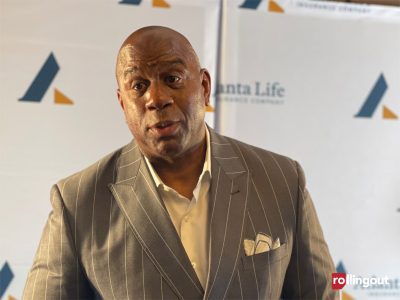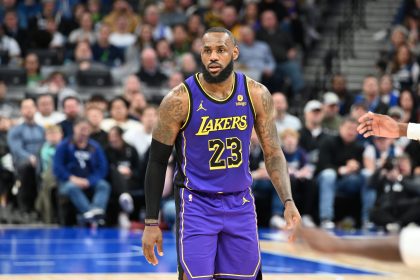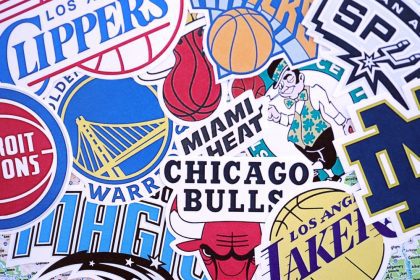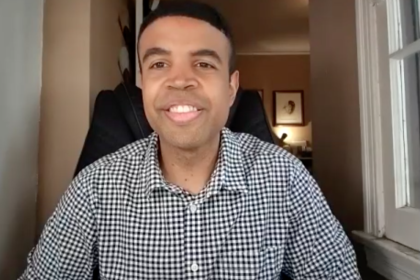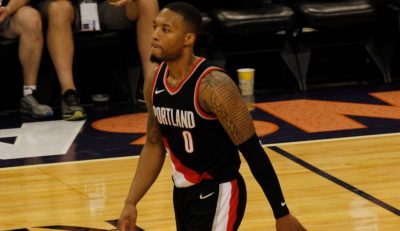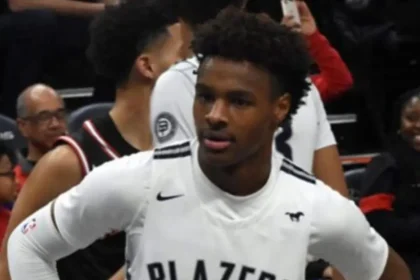
I admit, my decades-old resentment of the Los Angeles Lakers was purely subjective and in fun — until now. Until their treatment of all-time leading scorer and five-time champion of Kareem Abdul-Jabbar was made public.
Before, I hated the Lakers under Magic Johnson and Abdul-Jabbar for reducing Julius “Dr. J” Erving and his Philly teammates to blubbering blobs after beating them twice in three years in the NBA Finals in the early ’80s. And I hated them with even more ferocity when the next incarnation of their dynasty reappeared two decades later led by Shaquille O’Neal, Kobe Bryant and Phil Jackson. I even “blamed” them for getting Jackson and for winning three consecutive titles almost immediately after a decade of futility, which I loved.
But that was just purely sports hatred, based on emotions and trash talk. This thing with Abdul-Jabbar is far bigger and more important than that and is very problematic for me. It says something about the Lakers as an organization.

First of all, no Abdul-Jabbar, no ’80s dynasty. Period. No Kareem, no five championships and eight title appearance in the 1980s. Forget it. Not even happening. That alone should qualify the greatest scorer the NBA has ever seen to have his likeness erected outside of Staples Center before anyone else. Jerry West may have been “Mr. Basketball” and his legendary career on the court and in the front office is truly remarkable, but Abdul-Jabbar should have been first. Yes, Magic did something that hasn’t been done before or since, which was putting the Lakers on his back as a rookie, scoring 42 points, 13 rebounds and 7 assist to close out my Sixers — on their home turf, mind you — when Abdul-Jabbar was injured. But the Lakers didn’t get to the Finals without Abdul-Jabbar. His greatness enabled Magic to thrive and grow in a fruitful environment right out of college, which is why I resented the Lakers in the first place.
Most of all, Abdul-Jabbar is responsible for the single greatest moment in Lakers’ history. After being pummeled by the Boston Celtics in a bunch of NBA Finals time after time after time in the ’60s, and then being beaten by them in 1984 because Magic didn’t step up, Abdul-Jabbar carried the Lakers to their first victory over the Celtics in a championship game in 1985 and did it on their home turf. Abdul-Jabbar was voted NBA Finals MVP of that singular, unforgettable moment etched in Lakers’ fans’ consciousness forever.

The Lakers should have erected a statue of Abdul-Jabbar that very summer for that one feat alone.
Here’s the biggest issue about this bizarre melodrama and how it could have been avoided: the Lakers could have and should have consulted UCLA’s immortal coach, John Wooden. Wooden won big with Abdul-Jabbar and earned the athlete’s affection and love because he understood this shy, intelligent, and socially conscious giant. Abdul-Jabbar and his unstoppable hook shot has been forgotten, not just by the Lakers, but by the sports world in general. It’s sad, because Abdul-Jabbar stood up for blacks and equality during the 1960s and 1970s when most sports figures cowered and hid inside their jerseys.
Abdul-Jabbar was permanently injured mentally and emotionally from being absurdly tall and coming up as a black kid at the close of American segregation. John Wooden himself once said he didn’t know how Abdul-Jabbar endured life as “the big black freak,” as he was called out loud by a grandmotherly white woman who screamed it in a restaurant once. He endured taunts and devastating racial bigotry at every turn. Most of us today can’t even stand to be looked at oddly. Therefore the shy, introspective and introverted Abdul-Jabbar constructed thick walls around his heart for his own protection. Yes, he was bitter and rarely smiled and kept people at arm’s length for his entire career, which Bill Russell also did, which didn’t endear him to the press nor his teammates or fans or his employers in Milwaukee and Los Angeles. But he has since apologized many times. He was just protecting himself the best way he knew how at the time. I can understand that. Can’t you? People are angry at Russell and Abdul-Jabbar for being standoffish, silent pillars of rage back in the day, but they conveniently forget what created that anger, nor do they seem to care.

Moreover, Abdul-Jabbar is an established cultural figure whose experiences encountering racism, and subsequent conversion to Islam, got people talking about race and religion. He has penned six books, including several on African American history, and has just produced a thoughtful documentary now available on Netflix, On The Shoulders of Giants, which tells the story of the Harlem Rens, a successful barnstorming all-black team from the 1930s. I’ll also never forget the black-and-white image of a young Abdul-Jabbar (then Lew Alcindor) sitting with Muhammad Ali, Jim Brown, Bill Russell and other athletes who demanded equality for themselves and the entire race.
Today’s athletes only stand up to get at the next commercial endorsement and mini-skirt, and not always in that order.
This is a dignified and proud man worthy of respect beyond the game of basketball. He deserves better treatment from the organization he helped crawl from under the gigantic shadow of the Boston Celtics. Even the most beloved Laker, Magic Johnson, tweeted that Abdul-Jabbar’s statue should have come before his. And he is right.
It is shameful, really, how he has been treated by the organization he helped feed. And that’s why I now resent the Lakers with renewed vigor. But this time, it is intellectually and culturally based animosity because this is for a man who stood up for me before I was even born.
–terry shrosphire

